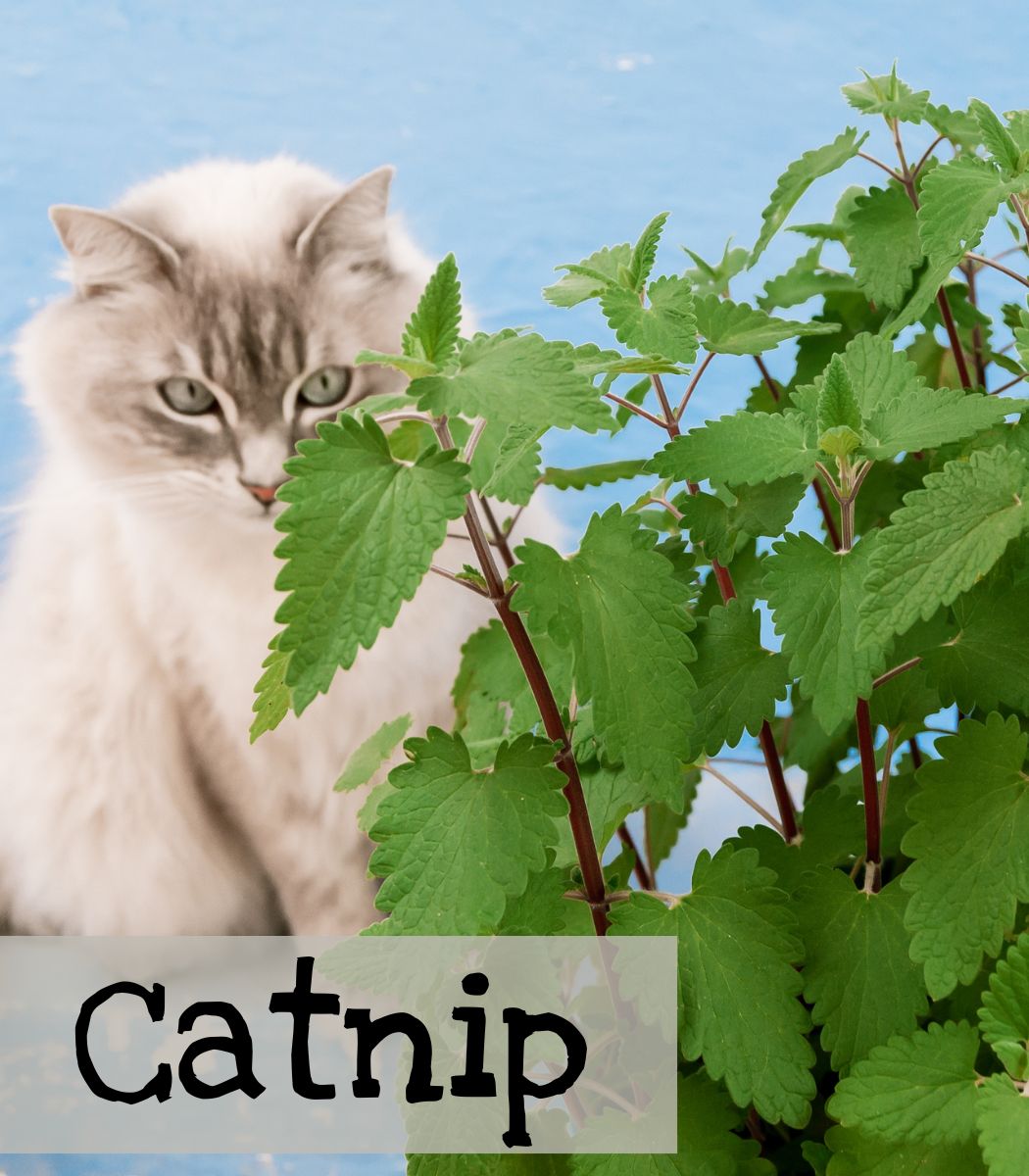
Catnip
Catnip is a perennial member of the mint family. It does attract beneficial wasps. However, it is most famous for how it affects most cats. It contains a chemical that many cats find very attractive. When dried, it can be used to make homemade cat toys. Just be aware if you plant this, your home may become the cat place to be!
|
N/A |
|
Nepeta cataria |
|
Intermediate to Easy |
|
Easy |
|
5 years if properly stored |
|
Perennial |
|
14-21 days |
|
None |
|
Surface Sow |
|
18” |
|
Seeds need light to germinate Full sun |
|
80-90 days |
|
April and May |
|
No |

Growing Tips



3 plants per 12” container
When to Start
Spring: Start indoors 6-8 weeks before your last average frost. (Mid-Feb – Mid-Mar for Jefferson, GA)
Direct sow: After the danger of frost has passed. (May 1 for Jefferson, GA)
How to Start
Start indoors 6-8 weeks before the last frost in your area. Surface sow into cells filled with pre-moistened seed starting mix. Then place them under grow lights. Pot up as needed.
Direct sow into full sun with well-draining soil after all danger of frost has passed. Gently press the seeds into the soil as they need light to germinate. Thin to 18-20’’ between plants.
Care
Catnip can be aggressive in some areas so you need to take steps to control it. Catnip plants spread readily by seed so, to control their spread, you’ll need to remove the flowers before they go to seed.
However, catnip is very sensitive to waterlogging and should only be watered when the surface of the soil seems dry, and then water deeply. Pinch young growth back to encourage a more shrub-like appearance.
As many cats enjoy this herb, unless you are planting for felines, it might be wise to enclose some plants for your personal harvest. Don’t be surprised if neighborhood cats come to visit if you plant this herb.
How to use
To turn the herb into cat toys, the best time for picking is when the plants are flowering. this is around mid-summer. This is when the compounds that cats love are at their peak levels in the leaves.
Cut the leaves and tie them into small bundles. Hang upside down and fully dry. You can also place leaves on a screen to allow for good airflow. Drying can take a few weeks. Keep out of reach of cats or they will destroy the leaves.
Seed Saving

Instructions
Let your catnip flower dry out on the catnip plant. This will happen at the end of the season.
Cut the flower off the catnip plant with a pair of scissors. It is best to cut the flower off, rather than pull it. This is because the seeds will be dried out and any sudden movements could cause them to fall out.
Hold your flower over a paper plate. Turn it upside down and give it a few shakes. The seeds will come loose and land on the paper plate.
Use your fingers to spring loose any remaining seeds that did not come out when you shook the flow.
Features
- Cold tolerant
- Drought tolerant
- Container friendly
- Attracts pollinators
- Attracts hummingbirds
- Fragrant
- Deer resistant
- Easy to grow and maintain (As long as the cats don’t kill it.)
- Catnip: Heirloom. Easy to grow perennial. Loved by most cats.
Sources:
Rareseeds.com
